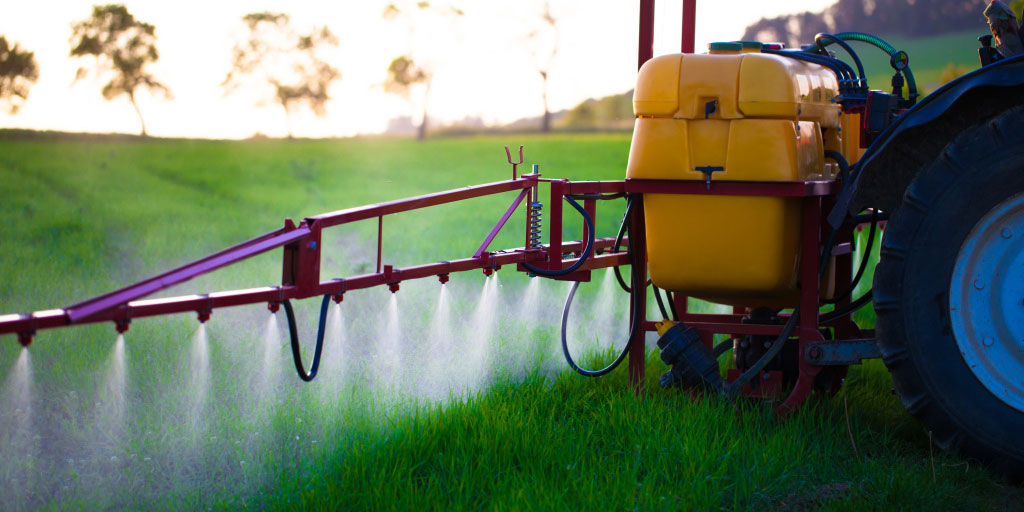How To Export Pesticides From Nigeria: The Rules, The Regulations, And The Requirements
How To Export Pesticides From Nigeria: The Rules, The Regulations, And The Requirements
About 80% of the pesticides used in Nigeria are imported. When they are not properly followed, it is detrimental to the environment and human health.
Nigeria imports about N1.8billion worth of pesticides annually with only N200million being spent on regulation for this industry.
It is important that we do everything possible to protect our environment, our people, and ourselves from the ill-effects of these chemicals. Here are some ways you can help with that effort.
Importance of Pesticides in Agriculture
Pesticides are important to the agriculture industry in Nigeria. They are used in crop production to control pest infestation. This includes insects, weeds, fungi, and microorganisms.
Applying pesticides is one of the most important things you can do when it comes to protecting your crops. Without the use of pesticides, crops would be susceptible to damage from pests, which can ultimately lead to decreased yields or crop failure.
It’s also important to note that pesticides are not just used in agriculture. They are also used in public health, food storage, and medicine.
Nigeria imports about N1.8 billion worth of pesticides annually with only N200 million being spent on regulation for this industry. It is important that we do everything possible to protect our environment, our people, and ourselves from the ill-effects of these chemicals.
Importance of Pesticides in Agriculture:
Pesticides are important to the agriculture industry in Nigeria. They are used in crop production to control pest infestation. This includes insects, weeds, fungi, and microorganisms. Applying pesticides is one of the most important things you can do when it comes to protecting your crops. Without the use of pesticides, crops would be
The Rules for Exporting Pesticides in Nigeria
The Control of Pesticides Act CAP C.I.11, Laws on Pesticides Control Nigeria, and the Nigerian Standard Organization are just some of the regulations that are in place to protect Nigerians from harmful pesticides that are being imported into the country.
Nigerian Customs Officials are tasked with carrying out rules and regulations of this Act. Customs has the power of entry into any premise, vessel, vehicle, aircraft or any place within the Nigerian territory to search for any article or substance which is being imported or exported or which is being legitimately manufactured or dealt with for the purposes of trade.
If you are exporting pesticides from Nigeria, you will have to meet some requirements.
Firstly, you must have a valid license to export pesticides. This license must be issued by the Federal Ministry of Environment. Secondly, you must also have a valid license to import pesticides. Lastly, you must ensure that your product complies with Nigerian Standard Organization requirements.
If these requirements are not met, the pesticides will be confiscated by Customs.
The Regulations for Exporting Pesticides in Nigeria
There are three key regulations for exporting pesticides in Nigeria:
-You need a permit from the Nigerian Department of Agriculture to export pesticides.
-All containers must be labeled with the product name, active ingredient, and quantity.
-A certificate of analysis must be attached to the container.
If you want to export pesticides from Nigeria, take these regulations into consideration first. You can find more information about the rules here.
Requirements for Exporting Pesticides in Nigeria
The government of Nigeria has put together the following requirements for the exportation of pesticides:
1. A manufacturer must be registered with the Federal Environmental Protection Agency (FEPA).
2. The manufacturer must produce a batch production plan.
3. A certificate of analysis that confirms that the pesticide is up to Nigerian standards is required for export.
4. The manufacturer must have a plant inspection certificate from the National Standards Organization of Nigeria (NSON).
5. An annual report is required with an up-to-date record of:
a) Manufacturers
b) Importers and exporters
c) Exporters
d) Destination countries
6. All plants must be registered with NSON.
7. A list of all plants and their respective registration is required for export.
8. The manufacturer must have a plant inspection certificate from NSON for all plants per Nigerian standards before exporting the pesticides.
9. The manufacturer must notify NSON of:
a) Changes in registration information
b) Changes in products and packaging
Conclusion
Pesticides are widely used in Nigeria, both within the agricultural sector and in households. The use of pesticides varies from insecticides to herbicides.
This post has provided you with information on how to export pesticides from Nigeria, the rules, the regulations, and the requirements.







LEAVE A COMMENT
You must be logged in to post a comment.